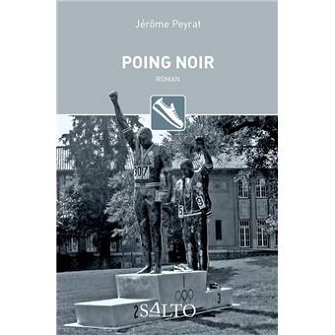In 1968, at the Olympic Games in Mexico, three men stood on the podium: two Americans and one Australian. These three men brought glory to their countries through the Games. Except that politics got involved.
The two Americans were Black, and by their action—each raising a black-gloved fist—they aimed to demonstrate the fight for civil rights and equality in their country. Blacks had to sit at the back of buses, and there were separate restrooms. Everything was designed to humiliate them.
The third man, the Australian, stood in solidarity with their action. In Australia, too, there was discrimination against the Aboriginal people, the island continent’s original inhabitants.
This book is the story of Peter Norman, the 200 meters silver medalist. We follow him through his preparation, his race, the great promises, and his medal. Upon returning to Australia, he was rejected for his support of minorities.
Jérôme Peyrat, an athlete himself, pays tribute to Peter Norman. On the track, a man faces challenges and self-surpasses. Time, distance, hurdles, always faster, higher.
A fine definition of the Olympic ideal and sport, except that political interests often call this ideal into question. A highly relevant book given the identity upheavals where hatred of the other serves as a scapegoat for populist allure. Peter Norman, a model for today.
Thierry Jan


